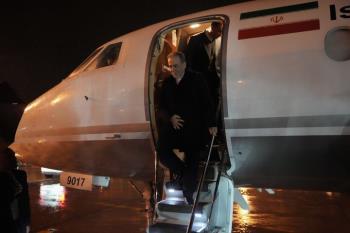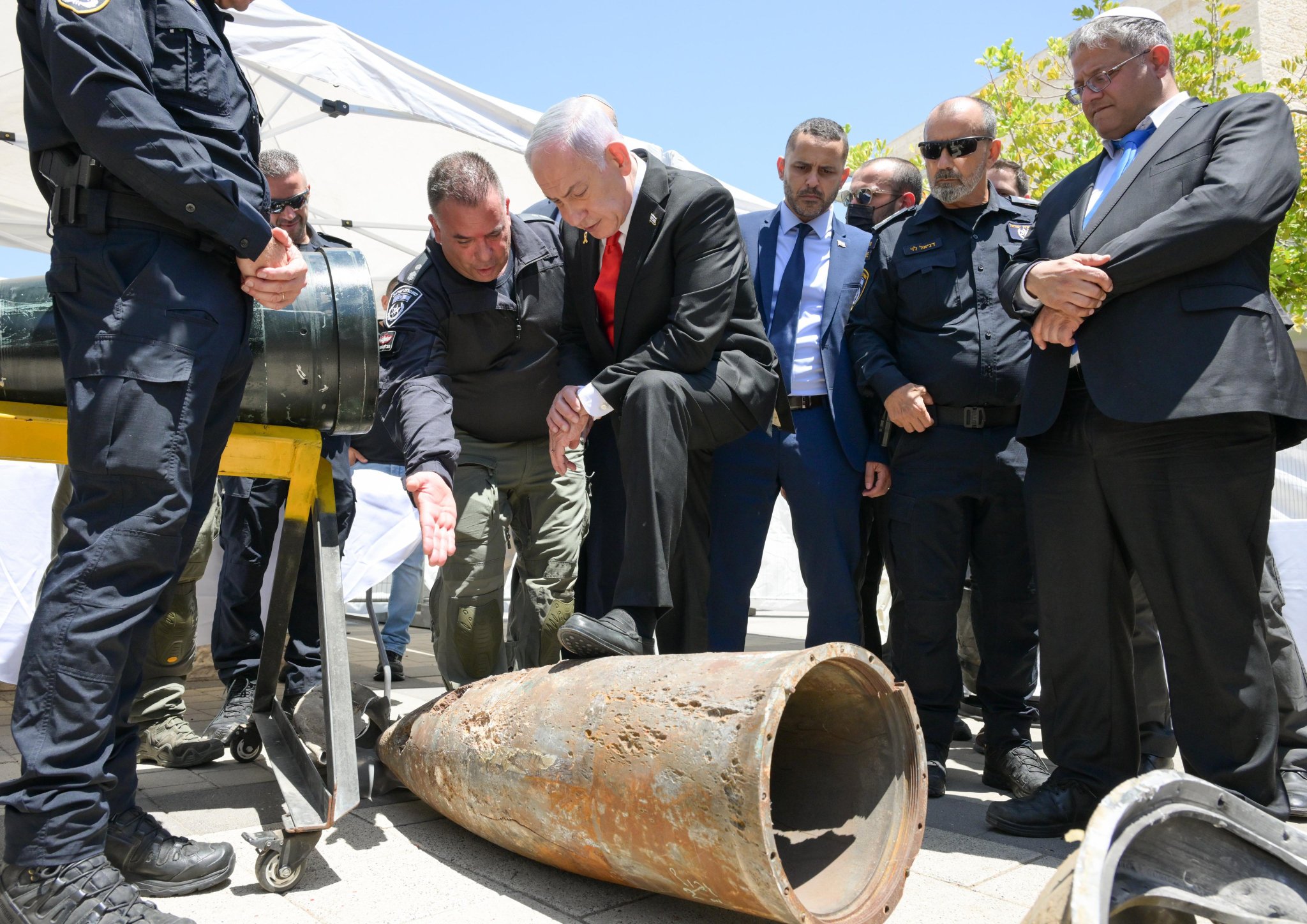Alwaght- Despite the Israeli failure in its 12-day war on Iran, all signs suggest that it is preparing to launch a fresh aggression against Iran. This, if happens, can push the tensions in West Asia to a more dangerous stage. Meanwhile, what is more than anything supporting the possibility of war starting again is the rush to boost Israeli weapons arsenal in recent days.
After the defeat in the war on Iran, Israel saw at least 17 military transportation aircraft carrying military equipment and weapons from the US, Germany, and Greece landing in its airports.
According to flightradar24 website, one of these flights was an Israeli Boeing 747 cargo plane with the registration number 4X-ICK, which loaded 128 tons of military equipment during a two-hour stopover in Cologne, Germany, and transported it directly to the Navatim air base. Analysis of flight data shows that the base has now become the main center for receiving and distributing new Western weapons, a sign that the Israeli regime’s weapons stockpiles have been depleted in the recent war and that they urgently need to be replenished.
Some sources have also claimed that a total of 821 tons of weapons have flowed into the occupied territories from the US, Britain, and Germany in the days following the ceasefire. The Pentagon also announced on Monday that the US State Department has cleared sale of $510 million in weapons, including heavy and bunker-busting bombs, to the Israeli regime.
At the same time, numerous American and European military flights have been observed in the skies over Iraq, Syria, and Jordan, which, according to sources, is part of a broad effort to strengthen the Israeli regime's defensive and offensive capabilities against new regional threats.
However, equipping the occupying regime with advanced Western weapons is not only a sign of its readiness for another war with Iran, but also the explicit statements and threats of Tel Aviv's leaders also show that the Israelis have not learned from Iran's heavy missile strikes and are still thinking about a new adventure in the region.
In this connection, Israeli Defense Minister Yisrael Katz claimed a few days ago that the attack on Iran is not over and that they will assassinate a number of other Iranian officials and commanders in the coming days.
Eyal Zamir, the chief of general staff of the Israeli armed forces, also claimed that the ceasefires in the region are only a pause and that the confrontations may continue after that.
Former Israeli Finance Minister Avigdor Lieberman also claimed that "we are preparing for a confrontation" with Iran and that this conflict will be very "difficult and complicated."
The hawkish remarks of the Tel Aviv officials about readiness to attack Iran afresh are a serious warning about the beginning of a new crisis in West Asia. Such a move could create a wide front of tension and conflict that would endanger not only the security of the Israeli regime, but also the interests and position of its Western supporters. Without a doubt, the costs of such a military adventure for Tel Aviv would be very heavy and irreparable.
Tel Aviv’s motivation to wage new war against Iran
As Netanyahu and his cabinet ministers had claimed, the aim of the anti-Iranian aggression was to destroy Iran's nuclear and missile programs. The Israeli PM claimed big success in the war, but it seems that just contrary to the bluffs, the Israelis have failed to realize their main aims. Even the US involvement has failed to effectively meet these objectives.
American media and intelligence sources have repeatedly stated that the June 22 US attacks on three Iranian nuclear sites— Fordow, Natanz, and Isfahan— have not obliterated Tehran's capability to enrich uranium and just delayed it for a few months. So, Netanyahu and his cabal think that with rejuvenated strikes, the can destroy Iranian nuclear infrastructure.
Haaretz newspaper, in a report on Tuesday about Israeli failure in attack on Iran, said: “Iran still holds its 60-percent uranium reserves, and Netanyahu and military officials do not claim that Iran’s missile and nuclear capabilities have been destroyed.”
In its first attack, Tel Aviv hoped to not only weaken Tehran’s deterrent power by destroying Iran’s key nuclear and missile centers, but also to create an atmosphere of insecurity and psychological pressure, ignite domestic protests and pave the way for regime change. However, to frustration of Tel Aviv’s leaders, Iran’s defense and nuclear infrastructure withstood the attacks, and the Islamic Republic’s missile capabilities remained strong even after the end of the conflict.
At the same time, Iranian society, although struggling with economic problems and external pressures, reacted differently to foreign aggression, and many social groups and even domestic critics demonstrated a kind of national cohesion in the face of the Israeli threat.
Now, with heightened rhetoric of the Israeli military and political officials about preparation for the second phase of their anti-Iranian campaign, the regime is once again seeking to reverse previous failures. Reports indicate that the focus of the second attack will be not only the nuclear facilities but also on command centers and communications and military infrastructure. Therefore, the certainty of an illusory victory in the second round of attacks may lead the Israeli leaders to venture again.
Can Israel withstand Iran's Operation True Promise IV?
With the Israeli movements and threats against Iran for a new attack, one essential question occupies the minds of observers and even Israeli society: Can Israel withstand another heavy blow from Iran? The 12-day war and unprecedented Iranian missile attacks showed that any military adventure can foist heavy costs on Israel; costs that may be irreversible this time.
Hassan Hanizadeh, an Iranian expert of West Asia affairs, told Alwaght that the Israeli adventures in the region are a sequel to its old projects, adding: " The Zionist regime tried to redesign the Middle East through a joint American-Israeli plan, and the events that occurred in Syria, as well as the assassination of Hezbollah commanders and the planning to assassinate Ansarullah Movements figures in Yemen, were carried out within the framework of this plan, which is meant to give the Zionist regime control of the region. One of the key barriers in the region to the implementation of this plan is Iran, and therefore they carried out a sudden attack under the pretext of nuclear weapons. But Tehran's response was devastating, and for this reason, after 12 days, the US called for a ceasefire. Now, given that this ceasefire is not sustainable, the generals of the Pentagon and the occupying army are recovering the strengths and weaknesses of their defense systems and are also evaluating Iran's strengths and weaknesses, and after eliminating their weaknesses, they will attack Iran again."
However, Iran's high degree of preparation for a strong response to any fresh aggression can neutralize joint American-Israeli attacks. Still, the danger remains in place and despite the fact that Tel Aviv sustained heavy blows from Iran in recent war, it wants to remove the only obstacle to the "new Middle East" project and reduce Iran to a weak and ineffective country in the region, according to Hanizadeh.
Asked if Tel Aviv can bear strikes of Iran in a new war, Hanizadeh said that "Israel's capability is dependent on redesigning and rebuilding its air defenses, and should it does so, it will attack with a more open eye. Now it is trying to thicken the layers of its air defenses in the region. Even NATO can get involved in favor of the occupying regime. Israel will take this big risk as it seeks a big surgery in the region. But there is an array of weaknesses in the occupied territories Iran can capitalize on should a new confrontation erupt."



























